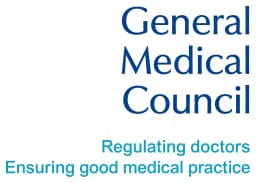Erectile Dysfunction Blood Screening
Comprehensive blood test to identify underlying causes of erectile dysfunction
Erectile Dysfunction Blood Screening
All-inclusive price
- Blood draw by experienced nurse
- Comprehensive lab results
- Nurse-led appointment with a written physical examination report
- Clear results issued by UKAS-accredited labs
Or call 020 7183 2362
Pay at the clinic on the day of your appointment
What's Included
Comprehensive testing covering all essential biomarkers for a complete health picture.
Cardiometabolic & Diabetes Markers
- Lipid Profile (Triglycerides, Total Cholesterol, HDL, LDL (Calculated), Non-HDL Cholesterol)
- Glucose
- HbA1c
Thyroid Function
- Free T4
- TSH
Hormonal Profile
- Prolactin
- Total Testosterone
- Free Testosterone
- Sex Hormone Binding Globulin (SHBG)
- Free Androgen Index
Prostate Health
- Prostate Specific Antigen (PSA)
Understand What's Causing Your ED
Erectile dysfunction affects up to 50% of men over 40 at some point. While it's common, it's not something you have to accept. ED is often a symptom of an underlying condition that can be treated. This comprehensive screening tests for diabetes, cardiovascular disease, hormonal imbalances, thyroid problems, and prostate issues - the most common physical causes of ED.
Identify diabetes and pre-diabetes (major ED cause)
Assess cardiovascular risk and cholesterol
Check testosterone and hormonal balance
Screen for thyroid dysfunction
Include PSA for prostate health
Results guide effective treatment options
Who Should Take This Test?
Men with Erectile Difficulties
If you're experiencing difficulty achieving or maintaining erections, this test helps identify treatable underlying causes.
Men Over 40
ED risk increases with age. Even without symptoms, this screening can identify risk factors before they cause problems.
Those with Risk Factors
Obesity, smoking, high blood pressure, diabetes, or heart disease all increase ED risk. Testing can reveal how these affect you.
Before Starting ED Medication
Understanding the underlying cause ensures you get the most appropriate treatment, not just a quick fix.
Ready to Take Control of Your Health?
Book your Erectile Dysfunction Blood Screening today and get comprehensive insights into your health. Results available in 3 working days.
Frequently Asked Questions
Meet Our Medical Team
Our experienced medical team is fully qualified and registered with the GMC and NMC, delivering safe, high-quality care in line with the highest professional standards.
Because our patients deserve nothing less.
Registered. Regulated. Trusted.
At South Kensington Medical & Dental, we are fully registered with the Care Quality Commission (CQC) and our clinicians are registered with the relevant UK regulatory bodies, including the GDC and GMC. Our dentists, dental nurses and medical professionals deliver care that meets the highest clinical, safety and ethical standards, because our patients deserve nothing less.





